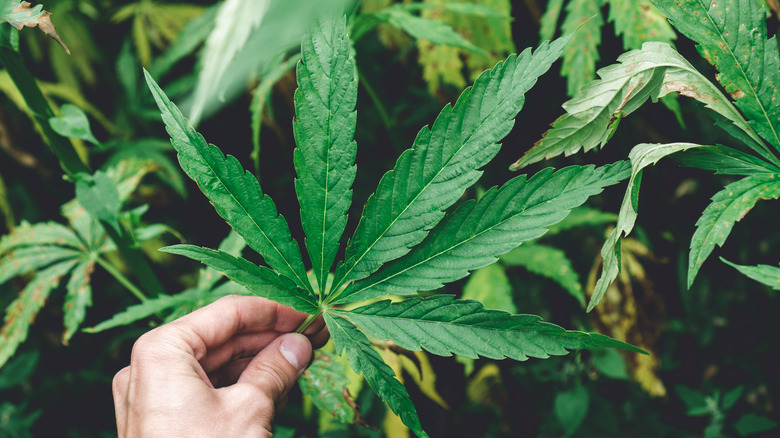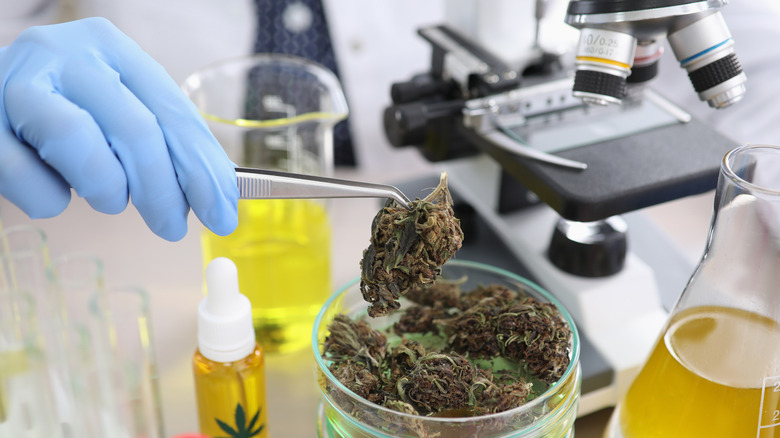What Is Delta-8 And Is It Actually Safe?
Delta-8 is a naturally occurring cannabinoid found in hemp and cannabis plants. It's also a form of THC, or tetrahydrocannabinol, which means that it contains psychoactive properties that can get you high (via WebMD). Although there is very little research on delta-8, its chemical structure is fairly similar to that of delta-9 — the main psychoactive compound in cannabis. Unlike delta-9, however, delta-8 is less potent and is found in much smaller concentrations.
It's also technically legal. While recreational cannabis is only legal in 18 states, the 2018 Farm Bill opened up the production of hemp plants on a federal level (via Good Housekeeping). While the intent was to produce CBD products, which do not contain psychoactive compounds and cannot get you high, the bill unknowingly made hemp-derived delta-8 legal as well. This is because there is no mention of the cannabinoid in the bill. Only delta-9 is prohibited under the law. Despite the Farm Bill, however, at least 12 states have banned the use and purchase of delta-8. This is largely due to the fact that delta-8 products are mostly unregulated. This means that the safety of the products cannot be guaranteed.
Is Delta-8 dangerous?
However, little research has been conducted on the safety or effects of delta-8 (via Good Housekeeping). While cannabis is generally considered safe in the sense that no one has ever directly died from smoking or consuming it, unregulated delta-8 products may contain impurities, especially when they come in the form of vape pens.
"We are at the tip of the iceberg learning about all these things, we really don't know yet what is safe and what is not," Dr. Michele Ross, a neuroscientist who studies the medical uses of cannabis, told Good Housekeeping. "You don't know what other chemicals from the manufacturing process you are inhaling and whether those could be causing headaches or nausea or other side effects."
While many have self-reported that delta-8 can reduce nausea, increase appetite, improve mental health, and prevent vomiting during cancer treatments, these potential benefits are only based on word of mouth (via WebMD). Still, others have also reported experiencing negative side effects like anxiety, confusion, drowsiness, numbness, low blood pressure, and a slow or fast heart rate. If you experience any of these side affects after inhaling or ingesting delta-8, you should call your doctor immediately. While there is no guarantee that you will or will not have a negative experience with delta-8, it can't hurt to proceed with caution. According to Ross, the safest way to consume delta-8 is to eat it in edible form.


